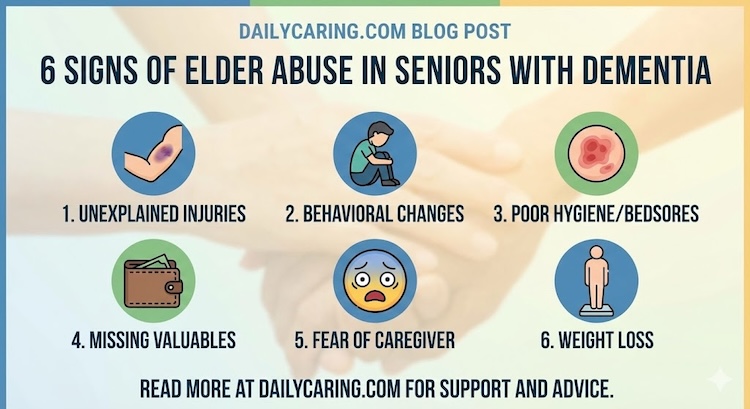Stepping into the role of a dementia caregiver is like being handed a map for a journey you never expected to take—a path that can be as disorienting as it is significant. In the beginning, it’s easy to feel lost in the day-to-day challenges, focusing solely on survival.
But what if you could do more than cope? What if you could find moments of joy, connection, and even personal growth along the way? Through my own experience, I discovered that thriving (not just surviving) is possible.

Here are 10 essential lessons that helped me transform my approach to dementia care and find resilience I never knew I had.
The caregiving journey is often filled with tough challenges and intense emotions. To help manage it all, Sue Anne Kirkham shares 10 suggestions for how to thrive as a caregiver, learned from hands-on experience caring for her father and stepmother with dementia.
Here's My Story – Sue Anne Kirkham
“I feel like somebody's demented grandmother,” Zelda declared as she wriggled her tiny frame out of the cavernous restaurant booth that had swallowed her up.
“I am somebody's demented grandmother,” she added with a giggle once she had planted her feet on solid ground.
I cared for my dear stepmother Zelda from 2005 to 2006 as she gradually disappeared into the fog of dementia.
Her self-awareness, the sense of humor that helped define her, a lively imagination – all slowly sucked into the vortex of an unrelentingly progressive disorder.
Since Alzheimer's research was in its infancy and resources were scarce, much of what I learned came from trial and error.
In sharing our story, I've confirmed that many of those lessons remain timeless and universal.
But Day One, there I was – a raw recruit, bursting with naïve expectations.
In the beginning, I read every book I could find on aging and cognitive decline, hoping to better arm myself against a stealthy and cunning foe that threatens to destabilize family relationships and annihilate established routines.
One thing the books taught me was to be discerning; not all counsel is good counsel for a given situation.
But the literature also led me to be flexible as I slowly accepted that general principles of behavior no longer applied.
A 2005 journal entry reflects my frustration:
The concept of living in the moment is popular with contemporary mental health specialists. It makes sense in the context of busy lives complicated by conflicting demands from work, family, school, and social causes. Don't miss out on today, obsessively planning for or worrying about tomorrow, they caution.
I get it.
But when you are a companion to a dementia sufferer whose conscious thoughts have no consistent framework, concerns for the future plague you, and expert advice can start to feel like scolding.
Zelda lives in the moment by default.
She has lost her ability to connect today to tomorrow. And yesterday – unrecordable in the jumble of disconnected synapses at the root of her confused thinking – may not exist for her at all.
Now I must train myself to identify with her new perspective without being engulfed by it.
Some days this is a challenge. But the will soldiers on.
In the course of that forward march, I formulated a strategy to help me stay on course.
As you map the way through your own caregiving adventure, I offer some guideposts.
Use them according to your own best judgment, steered by your intuition and your heart.
10 Things That Will Help You Thrive as a Caregiver
1. Be Assertive When You Need to Be
With doctors, with people who “mean well” but don't know the whole story.
And ask for help when you need it.
2. Be Patient with Yourself and Others
With yourself above all, with your charge, and with others who share your concern for the sufferer.
3. Be Forgiving to Yourself and Others
Be forgiving of yourself and of others' missteps: There is no one-size-fits-all map to follow in the calling of caregiving!
4. Try Not to Eat or Drink For Comfort
Eating and drinking to cope can be a real issue for some people. Don't! You'll end up with one more thing to forgive yourself for!
5. Talk About Your Caregiving Experiences
Talk to your spouse, your siblings, a support group, and good friends. Trust me, it helps!
6. Write About Your Experiences in a Journal
Keep a dump-it-all-here journal, compose an email or a letter to a supportive friend, or join an online discussion page. You'd be surprised how much just writing in a journal can help you during your caregiving journey.
7. If You are Religious, Lean on Your Faith
Whenever your situation seems hopeless, overwhelming, or bigger than you are, lean on your faith or spirituality.
8. Walk Off The Stress
Or bike it off or swim it off. Physical activity is a side-effect-free path to tranquility.
And getting or staying fit bolsters not only your self-confidence but also your emotional and physical stamina. Serotonin and endorphins are our friends.
9. Don't Make Assumptions
Don't make assumptions bout anything: another person's state of mind, or health, or view of your circumstances.
Communication is key here. Ask the question. Clarify the message. Choose your advisors with care. Take good notes when new facts emerge.
10. Don't Take Things Personally
Don't take things personally, and by “things,” I mean anything.
You are not the cause of the dementia sufferer's ill temper. And your actions may not be the motivation behind constructive criticism.
Opinion-givers are often moved by their own frustration, guilt, denial, sense of helplessness, or sheer lack of information.
Throughout the caregiving experience, emotions can run wild on all sides. I hope these reminders will help you tame them.
If you should reach the boiling point, please sleep on it before zipping off a fiery email or making a heated phone call.
I personally tested the acting-on-impulse thing so that I can save you the trouble. In the trial-and-error system, that one definitely belongs in the error column.
Final Thoughts
The journey of a dementia caregiver is one of profound transformation—for your loved one and for yourself. These ten lessons are more than just tips; they are a mindset shift from simply managing symptoms to cherishing the human connection that remains.
Remember, thriving isn’t about being a perfect caregiver. It’s about granting yourself grace, celebrating small moments of peace, and recognizing the incredible strength you demonstrate every single day.
You are not just providing care; you are living a lesson in love, patience, and resilience that will forever change you. Carry these insights with you, and trust that you are enough.
Recommended for you:
- What It’s Like Losing Your Mom to Dementia
- Humor in Caregiving Eases Tension and Boosts Mood
- 9 Best Alzheimer’s and Dementia Books for Caregivers
Guest contributor: Sue Anne W. Kirkham has worked as a geriatric nurse's aide and has served as a personal companion and caregiver to three family members. She is also a freelance writer and blogger who has published print articles on aging, human interest, and family relations as well as online profiles of inspiring everyday heroes. Her book, Loving Zelda: A Stepdaughter's Caregiving Journal, documents the 18 months she spent caring for her father and stepmother as they dealt with physical and cognitive decline.
This article contains some affiliate links. If you buy through an affiliate link on our site, we may earn a small commission, at no additional cost to you. For more information, see How We Make Money.














Thanks for the this article I am a caregiver to my wife who has Huntington’s disease, have you got any articles for her disease. If you have I would be interested.
We’re so glad this article is helpful. We found that the Huntington’s Disease Society of America has great information – https://hdsa.org/
Thank you for a good article. Well written and informative.
You’re welcome! Thanks so much for the kind feedback.